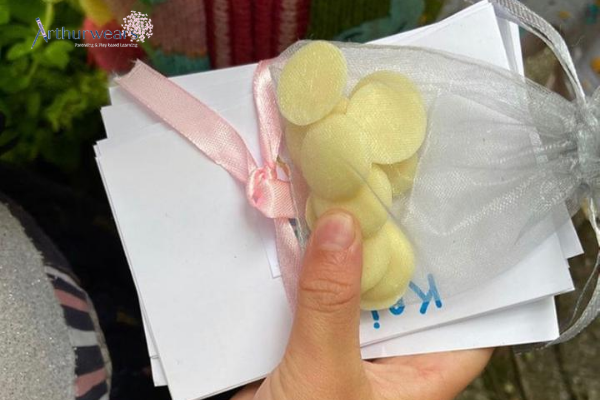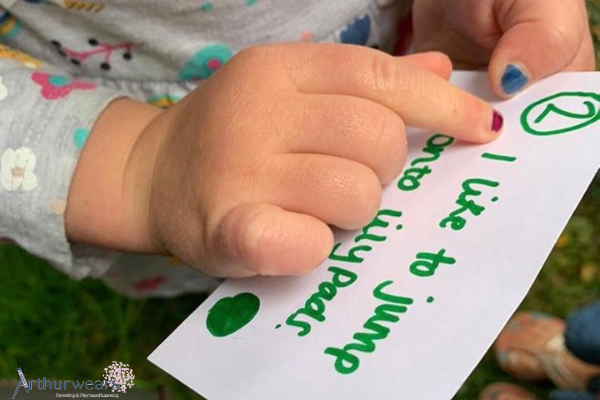Have you ever wondered what it means to follow the children's interests? It's a phrase you will likely hear a lot if you work within Early Years or have EYFS aged children. Best practise is for practitioners and educators to tailor the learning experiences to the individual child or children, so that engagement is high, learning is enjoyable and lessons are likely to be remembered and retained.

This idea of making learning appealing to an individual by incorporating something that they have a fascination with, into the learning opportunity doesn't just have to stop with Early Years. Many teachers have had huge amounts of success in teaching maths and literacy by following certain interests (such as football) in order to engage students and maximise the chances of them retaining the skills they have learnt.
Today I have Sam and Immy from Sam Goldsworthy Childminding, explaining the process of embedding children's interests into all aspects of learning - with a run through of how they set this up within their setting, and progressed over time...
Embedding children's interests in all aspects of learning
We are Sam and Immy, Early Years practitioners based in Cornwall where we love being outdoors either at the beach or in nature. We are very much a nature-based setting with the element of Hygge and Montessori embedded in our practice. We have recently enrolled to do our Forest School Level 3 Leadership Qualification as well as undertaking the Hygge in the Early Years Accreditation. We are passionate and advocate that children learn best through following their interests in an outdoor, stimulating environment where they are given the opportunity to negotiate their own play through hands on experiences.
Following the children's interests...
In our setting we endeavour to follow children's interests in all aspects of our daily practice, not just on one occasion. Recently we have been following a fairy interest due to one little girl having a love for fairies, by roleplaying with these, and encouraging her peers to ignite this passion too. Since we noticed this, we have adapted both our indoor and outdoor provision to instil this sense of awe, curiosity and imagination...
How did we adapt provision to follow a particular interest?
A few weeks ago, the children heard fairy music playing and then noticed a note had appeared on our fairy door in the playroom, leaving behind a note from ‘the fairies.’ This had already sparked the learning for the children in our setting with lots beginning to question, reason and curiously explore amongst each other, facilitating the perfect learning opportunity.
"I can hear the fairies, Immy the fairies"
"Where are they? Are they next to the house, under the chair"

On this note the fairies had left a treasure hunt for the children to follow by listening to the clues and problem solving together. The first clue read ‘I am Brown and I eat carrots.’ They instantly knew where they had to go, and a particular child took the lead to the rabbit.
"I can hear the fairies, Immy the fairies"
"Where are they? Are they next to the house, under the chair"

On this note the fairies had left a treasure hunt for the children to follow by listening to the clues and problem solving together. The first clue read ‘I am Brown and I eat carrots.’ They instantly knew where they had to go, and a particular child took the lead to the rabbit.
Each child had a clue to find which took them on the tour of the garden sparking even more excitement. The children used their knowledge of the surroundings to act as a bridge between their learning and the fairies clues. This then ended with the clue ‘We live here and it’s a triangle shape.’ Which took the children to the fairies house where they were eager to be greeted with cards for each child and a small bag of chocolate buttons.
Each card was individual to each child showcasing a recent achievement. We took it in turns to read each card, to listen and congratulate our friend on their accomplishment by clapping them and sharing this tasty treat. This activity was so beneficial in increasing self-esteem, self-confidence, developing a sense of belonging as well as forming good relationships with peers, incorporating Hygge into learning.
To enhance this learning experience further for the older children in our setting we, together with the children, incorporated a phonetic rhythm which the children chanted throughout the treasure hunt ‘Find Flying Fairies.’ This simple phrase did not stop when this learning experience did... fast forward to three weeks later and the children are still chanting this phrase on their own journeys around the garden, in the roleplay indoors as well as in their home settings, encouraging parents to adopt this learning too.

Extending an interest or a theme...
By following children interest the breadth of learning opportunities are endless and enriching, giving them the language, knowledge and confidence to negotiate their own roleplay. We have since, three weeks later, followed this theme with the same set of children by adapting our provision, as well as the fairies leaving us further activities to engage with including loose part fairy wings and fairy extraction from ice. Again, igniting the same passion and extending their learning.

The learning that was achieved would not have been as successful if the children were not intrigued and interested to learn. Their sense of awe took over and the imagination and learning unravelled as a result. This is an example of how child-led learning works in our setting alongside our outdoor learning ethos.
You can follow Sam and Immy on Facebook – Sam Goldsworthy Childminding and on Instagram – @samgoldsworthychildminding
Are you looking for some fairy themed resources yourself?
why not pop over to my shop and have a look at our fairy garden set, fairy peg dolls or our fairy spell writing kit...


